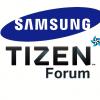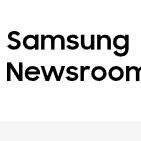Tizen Wiki
-
Similar Topics
-
By adem377
Hello everyone, I hope you're doing well. I have Tizen TV 4 and 6 devices, and I would like to know how I can capture a screenshot within the Tizen system on these devices.
-
By Sau
Hello,
I have Samsung TV (qe55q80datxxh) with Tizen OS and unfortunately it doesn’t find necessary apps on its store. I.e. App called “TV Zone” (https://tvzone.app) - it supports Tizen OS, but on Samsung store it is not visible. Is there any way to install this app in Samsung via store or like a third party app using usb stick (is it even possible?)?
Txanx!
-
By Alex
Three weeks ago, the company released in India the Samsung Z1, its first smartphone powered by Tizen, a homegrown alternative to Google Inc.’s Android operating system.
This week, Samsung is pushing the Samsung Z1 into Bangladesh, a neighbor of India with more than 150 million people and a similarly low rate of smartphone penetration.
After several missteps and rethinks, Samsung’s strategy for its Tizen smartphones is taking a clear shape: the company is aiming the fledgling platform squarely at first-time smartphone users, many of whom may not even have a bank account. The Samsung Z1 is selling in India for about $90.
To that end, Samsung has been touting the “lightweight” nature of the Tizen operating system, meaning that it requires relatively little computing power and can handle most tasks without requiring pricey high-end specifications.
That same lightweight approach has also allowed Samsung to use Tizen as the platform for many of the devices it is hoping will populate its “connected home,” from televisions to smart watches and home appliances.
Despite concerns that Samsung’s new smartphone would face stiff competition in India, where several local handset makers are touting low-end smartphones — some of them in partnership with Google — Samsung says that its Tizen smartphones have received “positive responses” there.
Positive enough, it seems, to at least push Tizen into a second country.
Source: http://blogs.wsj.com/digits/2015/02/06/samsung-extends-tizen-smartphone-to-bangladesh/
-
By maljaros
There is no native Strava mobile app for Tizen OS smartphones, so what app could be used for tracking trail run and cycling activities on a Samsung Z4? Or is there a "non-native" route to Strava itself?
Thank you, Maljaros
-
By Samsung Newsroom
We are pleased to announce the release of Tizen Studio version 6.0.
This release includes new features to enhance developer experience on Visual Studio Extension for Tizen, Visual Studio Code Extension for Tizen and Tizen Studio IDE.
Key features:
VS Code
Tizen activity bar, Device Monitoring and Welcome Page features have been added to enhance Tizen developer experience. TV Web development has been added along with the TV Web Simulator and Web Inspector features. SDK Installation Wizard is provided to easily setup Tizen SDK and Extensions. Unit Test, Code Coverage, ASAN, and LSAN Tools support has been added for Tizen Native Applications. Visual Studio (Windows)
Added Unit Test and Code Coverage support for Tizen Native Applications. Added ASAN and LSAN tools support for Tizen Native Applications. Added context menu option named Install Tizen Application to install application directly on a target device.
Tizen Studio
Added Tizen 9.0 profile and deprecated all Tizen profiles below 6.0. Tizen Issue Reporter added in SDK and Baseline tools. Tizen Studio and Tizen tools are now supported on Windows 11 OS.
For more information about the new features and bug fixes, check Release Notes.
To download Tizen Studio, visit https://developer.tizen.org/development/tizen-studio/download.
View the full article
-
-



Recommended Posts
Join the conversation
You can post now and register later. If you have an account, sign in now to post with your account.
Note: Your post will require moderator approval before it will be visible.